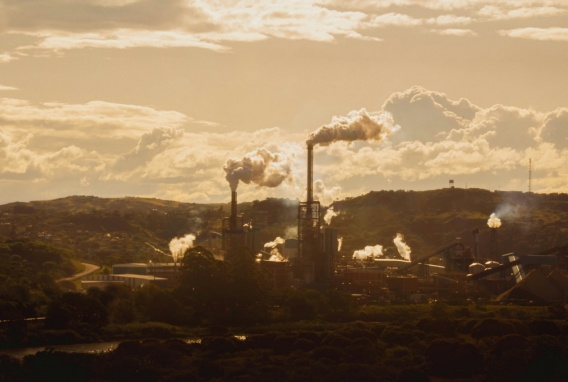France and Japan broke new ground in March in a shared quest to bolster resilience in critical mineral supply chains amid growing geopolitical uncertainty.
In a remote corner of southwest France, the first stone was laid in a project to extract heavy rare earths, notably dysprosium and terbium, from mineral concentrates and recycled magnets — the first such venture outside of China.
If all goes to plan, the facility backed by French and Japanese public and private financing could account for up to 15% of global oxide production of these two metals once it becomes operational at the end of next year.
The project shows how partnerships based on common interests can provide precious opportunities even in the face of unilateral pressures and the increasing weaponization of supply chains — not only to increase supply chain resilience, but improve environmental sustainability.
Heavy rare earths are a subset of 17 rare earth metals that are essential in a wide range of industries critical to today’s and the future economy. Notably, they are used to produce high-strength permanent magnets — key components in electric vehicle motors — as well as computers, offshore wind turbines and advanced fighter jets.
China has been the only country capable of processing this specific set of heavy rare earths, and its dominance in this field stretches even further: Globally, it accounts for 70% of rare earths mine production, 90% of rare earth materials refining and processing and over 90% of rare earth magnet manufacturing.
Amid increased tensions with the United States, Beijing has tightened its control over rare earth minerals, processing technologies and permanent magnets in a bid to maintain its dominance over this important value chain. China has also moved to limit access to critical metals such as graphite, gallium, germanium, tungsten and antimony as part of a tit-for-tat confrontation with the U.S. to leverage critical choke points in a broader struggle over technological hegemony.
On its part, since U.S. President Donald Trump’s return to the White House, Washington has shifted radically toward a more mercantilist approach to procuring critical raw materials and recentering supply chains toward the U.S.
Indeed, securing access to mineral resources is a precondition for American support for Ukraine as laid out in a deal signed on April 30 and this concern features heavily in Trump’s rhetoric on taking control of Greenland and making Canada the 51st state.
Only months before the Trump administration’s March 20 executive order aimed at using wartime powers to bring critical mineral extraction and processing to American soil, Washington was swinging in an entirely different direction. Former President Joe Biden’s government invested heavily in deepening multilateral cooperation with Japan, France and a host of partners involved in critical mineral value chains to reduce dependency, notably on China, and strengthen resilience.
Projects such as the Minerals Security Partnership promised to coordinate financing, deepen supply chain synergies and uphold the highest environmental standards — but this collaborative vision is now under threat.
France and Japan can and must work together to continue charting this cooperative future. The French rare earth processing plant, one of 47 strategic projects recently unveiled by the European Commission, offers one example of how this can work.
Located in the town of Lacq and operated by Caremag, a subsidiary of French company Carester, the project is supported by €216 million ($245 million) in cofinancing provided by the French government, the state-owned Japan Organization for Metals and Energy Security (JOGMEC) and Japanese trading house Iwatani.
Ensuring long-term investments through public support is essential for many critical mineral markets because of their small size and volatility. While Europe has until now lagged in mobilizing such support, JOGMEC has for decades played a crucial role in ensuring resources for Japanese industries.
France and Europe have valuable lessons to learn from Japan in this domain, and there is ample room for other joint projects like the Lacq facility.
The venture is an example of supply chain complementarity. It builds on a rich history and established expertise in rare earth processing in France, where facilities run by Rhodia (owned by Solvay) have operated in La Rochelle since 1948. It also capitalizes on Japan’s expertise in metallurgy and magnet manufacturing, with the country accounting for 7% of global production of rare earth magnets, most of which are high-end ones.
Starting in 2026, the Lacq plant will recycle used magnets, process mined mineral concentrates and produce an estimated 600 tons of dysprosium and terbium as well as 800 tons of neodymium and praseodymium oxides per year. This is enough to meet an estimated 20% of Japan’s demand as well as that of other countries and industries, including a budding French magnet sector.
Furthermore, the plant is expected to demonstrate that mineral processing — a notoriously toxic industry — can be done responsibly and sustainably, in a country with high environmental, social and governance standards such as France. This includes using state-of-the art techniques such as waste reprocessing and dry tailings.
In fact, environmental devastation continues to plague mining communities across the globe, and Japan and France should not shy away from responsible industrial practices — instead, they should pioneer them. The Lacq plant is the first of many projects to recycle rare earth magnets in France and, more broadly, the circular economy is an area where Japan and France can find common ground.
That said, these two countries can’t ensure resilient rare earth supply chains on their own. Neither mines rare earth ores (the four primary producers are Australia, the U.S., Myanmar and, of course, China) but the possibilities for diversifying production are many.
Given the truly global nature of the end-user market for rare earth magnets and other related products, strengthening multilateral partnerships along diverse supply chains is all the more crucial for both France and Japan, who must continue moving in this direction together. "Source:The Japan Times"




